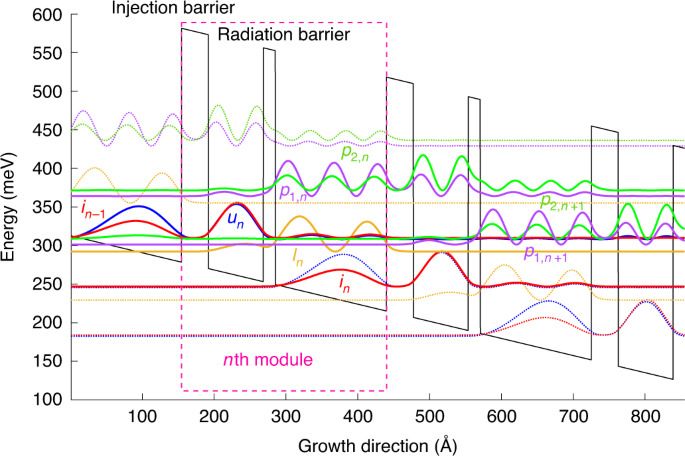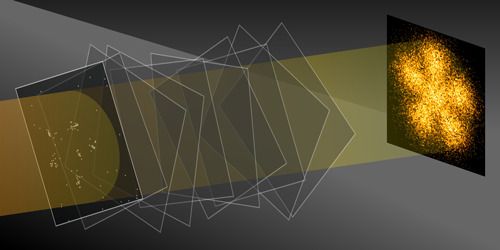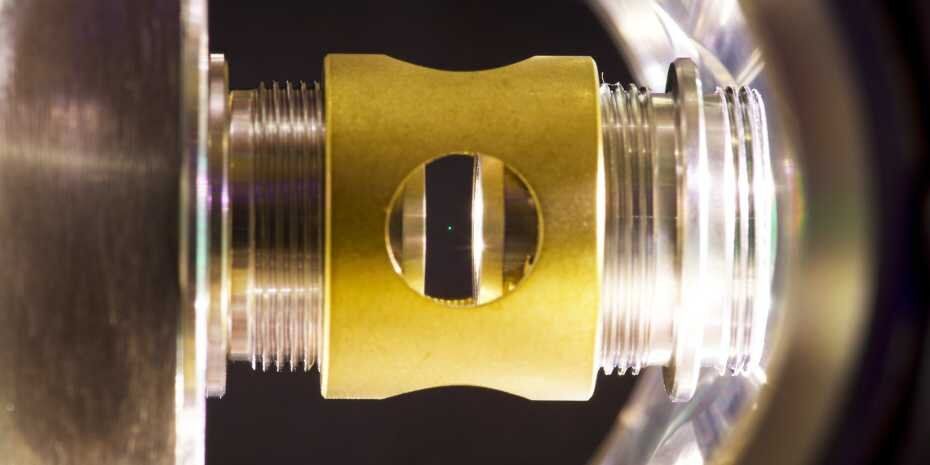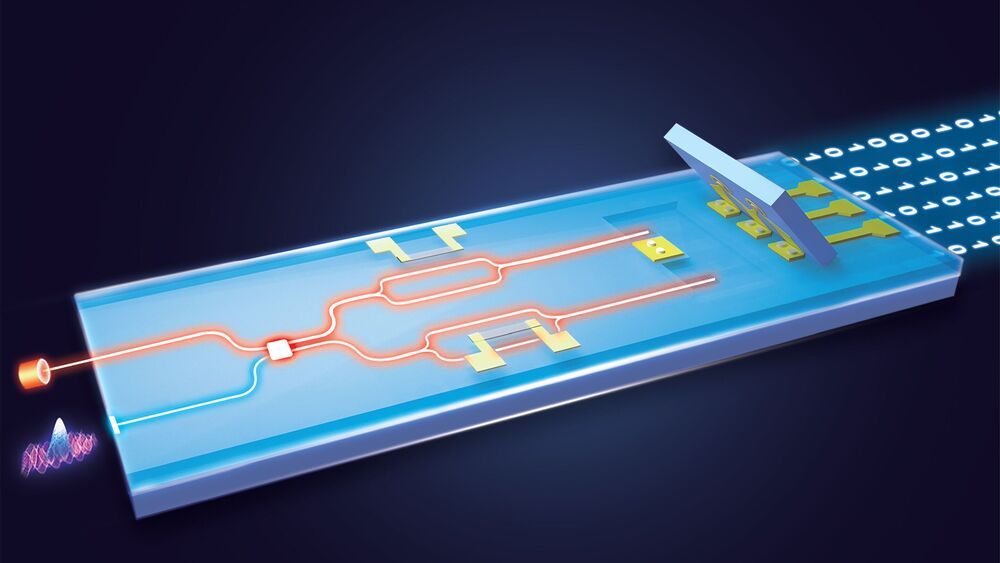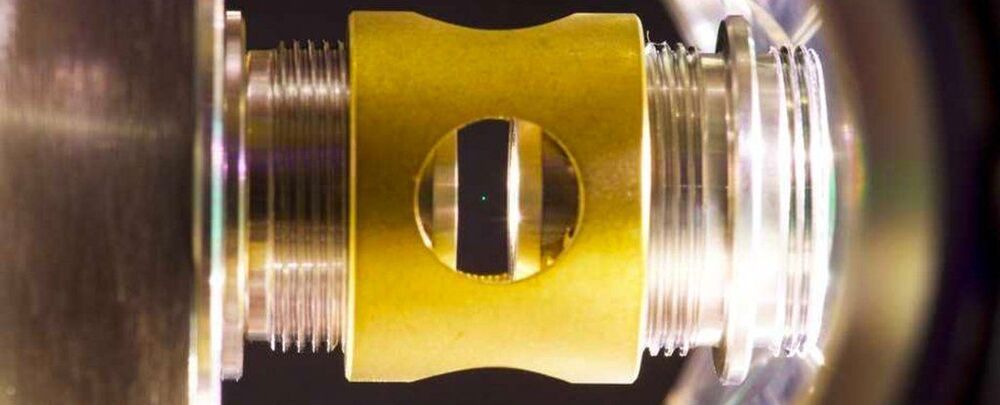A novel, high-resolution fluorescence imaging technique reveals a pattern, known as a Pauli crystal, that can emerge in a cloud of trapped, noninteracting fermions.
Bring two particles together and, in general, they will interact. For example, two electrons will repel each other through electrostatic forces, or two atoms may form a molecule through electrostatic and van der Waals forces. Noninteracting particles, however, can also affect another’s behavior in a way that depends on the spin of both particles. In particular, fermionic particles, which have half-integer spin, obey the Pauli exclusion principle, which states that two fermions can never occupy the same quantum state. Two electrons in an atom, for instance, can never occupy the same quantum state. As a result, noninteracting particles can form self-organized structures. However, these structures, called Pauli crystals, have not been previously observed. Now using ultracold atoms, Marvin Holten from the University of Heidelberg, Germany, and colleagues have experimentally realized and imaged a Pauli crystal [1].
